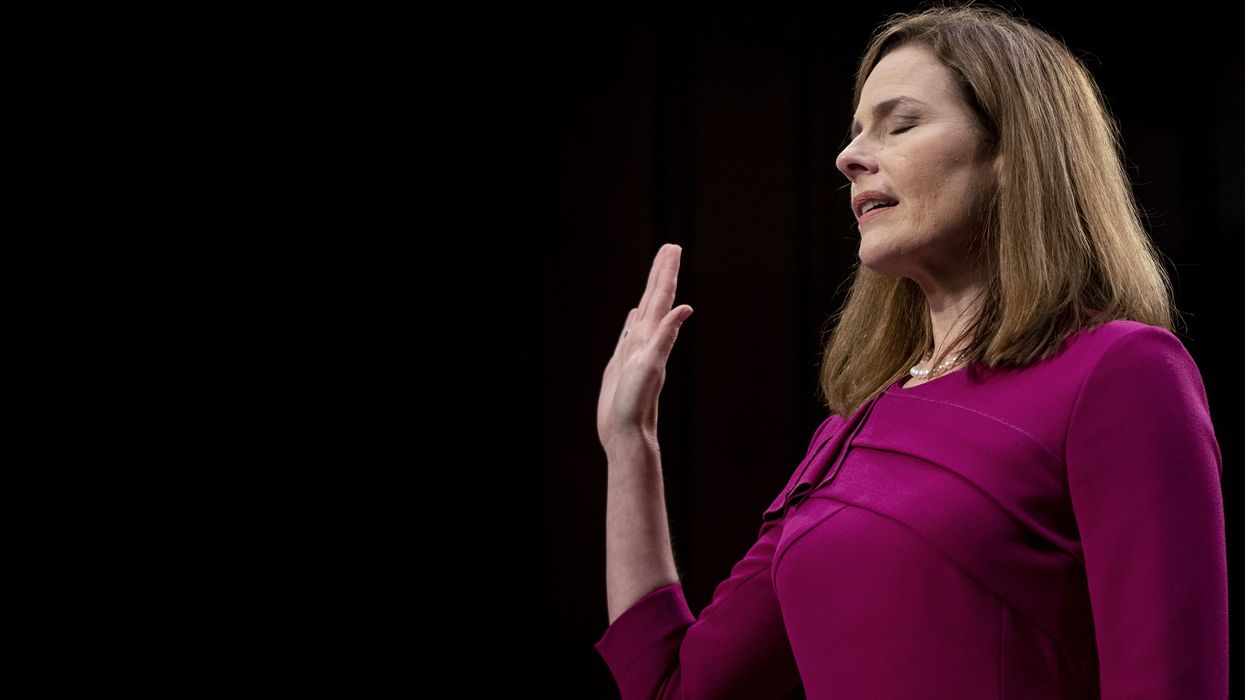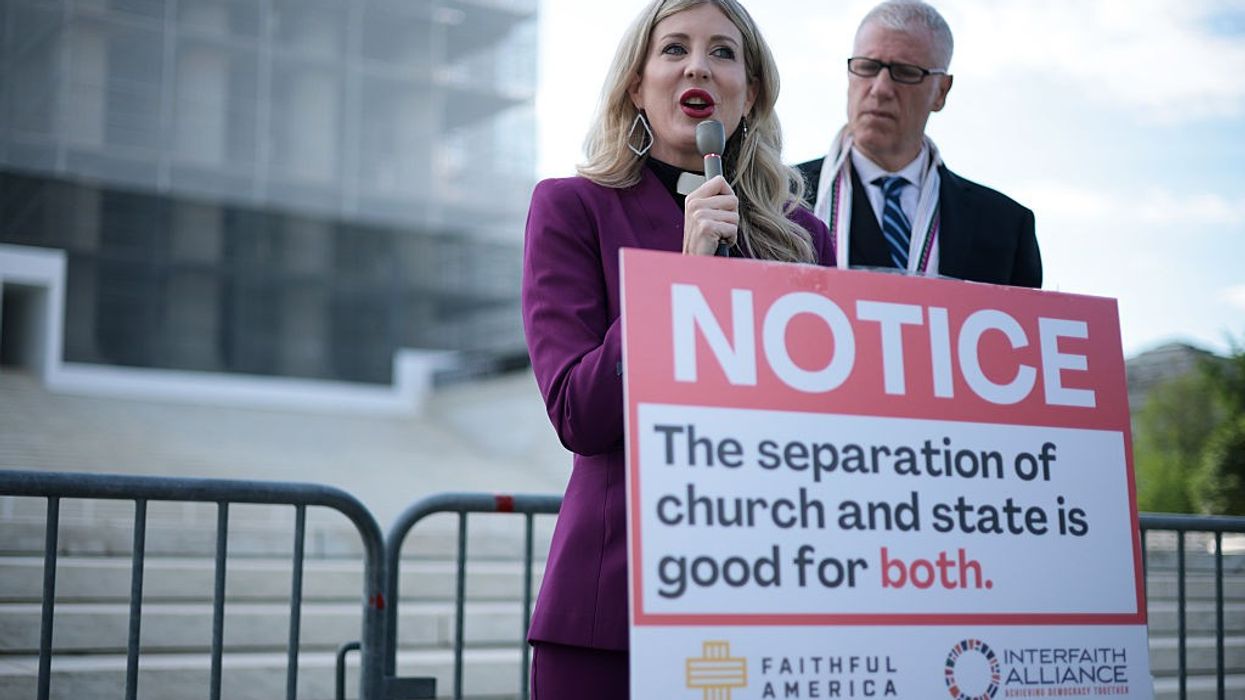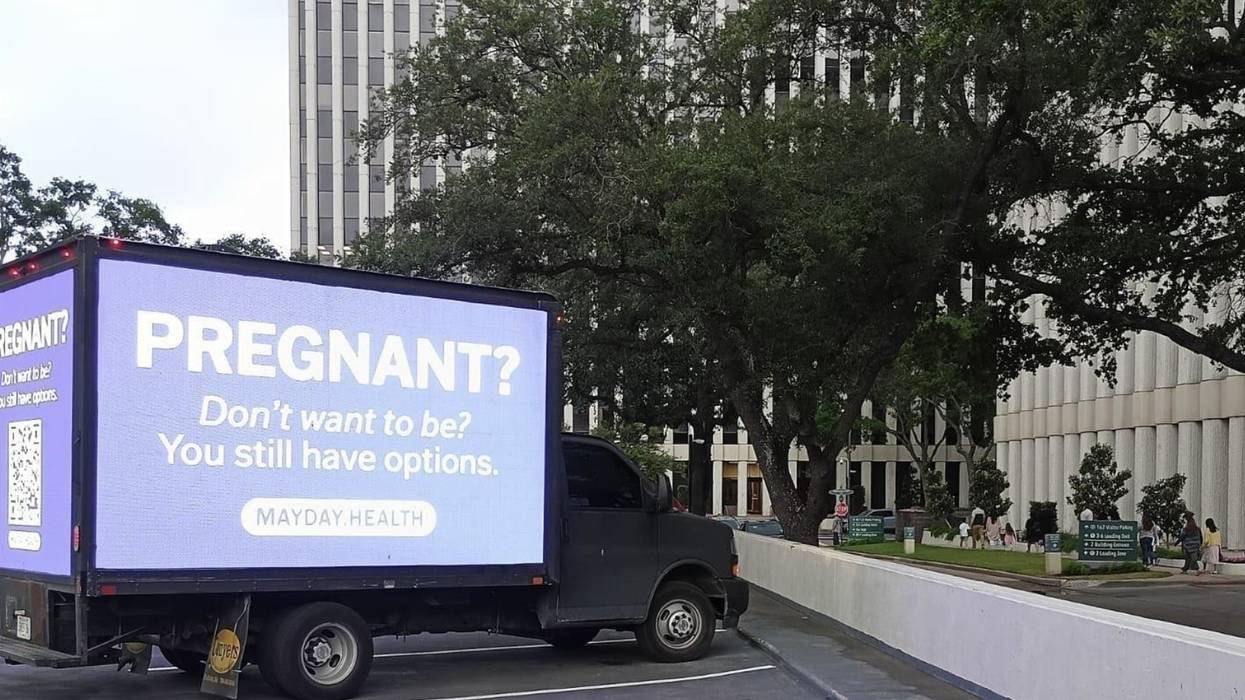With Its Birthright Non-Decision, the Supreme Court Chickened Out and Left a Mess Behind
Barrett and the conservative majority produced a complicated and confusing procedural ruling that leaves the executive order in legal limbo.
Just how bad is the Supreme Court’s June 27 decision on birthright citizenship? Among progressive and liberal commentators, the thinking is surprisingly mixed. Some assert that Trump v. CASA “couldn’t be more disastrous” and will leave the Trump administration with “blood on its hands”; others see “silver linings” in the ruling.
The reason for the diverse reactions is simple: The 6-3 majority decision written by Justice Amy Coney Barrett didn’t address the underlying issue in the case—the constitutionality of President Donald Trump’s executive order ending birthright citizenship under the 14th Amendment for the children of undocumented immigrants. Instead, Barrett and the conservative majority produced a complicated and confusing procedural ruling that leaves the executive order in legal limbo, intact for now but subject to further litigation.
As I have written before, Trump’s birthright order defies the plain text of the very first sentence of the 14th Amendment. Known as the “Citizenship Clause,” the sentence reads: “All persons born or naturalized in the United States, and subject to the jurisdiction thereof, are citizens of the United States and of the State wherein they reside.”
Had Barrett and her confederates not ducked the underlying issue of the executive order’s constitutionality, they would have been forced either to rewrite the Citizenship Clause to uphold the order—a step even they apparently are not yet prepared to take—or invalidate a centerpiece of the MAGA mass deportation agenda.
The executive order stunningly disregards these easily understood words, proclaiming that the amendment “has never been interpreted to extend citizenship universally to everyone born within the United States,” but was adopted only to repudiate the Supreme Court’s infamous Dred Scott decision that denied citizenship to Black Americans.
But while repudiating Dred Scott was the immediate impetus for crafting the Citizenship Clause, the Senate and the House debates in 1866 extended far beyond that notorious decision.
The clause was introduced in the Senate by Jacob Howard of Michigan on May 30, 1866, as an add-on to the draft of the 14th Amendment formulated by the House. The clause tracked similar language contained in the Civil Rights Act of 1866 and followed the general principles of English common law and the ancient doctrine of jus solis (the “law of the soil’’)—the principle that all those born within the geographic boundaries of a nation are citizens at birth. (More than 30 countries today recognize the doctrine, including the United States, Canada, and Mexico. Great Britain modified its nationality law in 1981.)
In his introductory remarks, Howard noted the phrase “subject to the jurisdiction” of the United States meant that the citizenship clause would not apply to the children of ambassadors or foreign ministers, the children of occupying foreign soldiers, or to the offspring of Native Americans who claimed allegiance to tribal governments, but that the clause would “include every other class of person,” regardless of race or descent. (Native Americans were accorded citizenship by legislation passed in 1924.)
The citizenship clause, Howard said, “settles the great question of citizenship and removes all doubt as to what persons are or are not citizens of the United States.”
Trump’s executive order also contradicts the court’s precedent opinions dating back to the landmark 1898 case of United States v. Wong Kim Ark, which recognized the citizenship of a man born in the U.S. to parents who at the time were subjects of the Chinese Emperor but domiciled in California. That case and other later decisions demonstrate the inclusive nature of the Citizenship Clause.
Had Barrett and her confederates not ducked the underlying issue of the executive order’s constitutionality, they would have been forced either to rewrite the Citizenship Clause to uphold the order—a step even they apparently are not yet prepared to take—or invalidate a centerpiece of the MAGA mass deportation agenda.
In the end, they chose to do neither.
But they still managed to hand Trump the next best thing to a total victory. Barrett’s ruling granted the administration’s request for a “partial stay” (or pause) on three nationwide preliminary injunctions that had been issued by three federal district court judges—which blocked the birthright order from taking effect anywhere in the country—and sent the cases back to the district judges for further consideration to weed through and apply the jurisprudential mess that Barrett left behind.
In a tortured analysis that New York Magazine’s Chas Danner called “an originalist fever dream,” Barrett limited the court’s review to the sole question of whether, under the Judiciary Act of 1789, federal courts have the authority to issue nationwide, or “universal,” injunctions. The act was one of the first laws passed by Congress after the ratification of the Constitution, and in modified form remains on the books in Title 28 of the United States Code. And as Barrett noted, it is the Judiciary Act that has endowed federal courts with jurisdiction over “all suits… in equity,” and that “still today… authorizes the federal courts to issue equitable remedies,” such as injunctions.
As an originalist, Barrett interprets the Constitution and federal statutes rigidly according to their text and their “original public meaning,” discounting evolving legal norms and practices as well as contemporary social values and needs. When it comes to universal injunctions, however, originalists have a problem. No federal statute, including the Judiciary Act, explicitly authorizes judges to issue nationwide injunctions, but no statute prohibits them from doing so.
In the absence of any guidance from the 1789 act, Barrett and the majority revved up their originalist wayback machine to examine how the English High Court of Chancery operated at the time of the founding, asking if that court issued forms of equitable relief analogous to contemporary universal injunctions. “The answer,” she wrote, “is no.” Equitable remedies at the time of the founding, she concluded, could provide “complete relief between the parties” to a lawsuit, but “complete relief is not synonymous with universal relief” that applies throughout an entire country.
But then, in another confusing twist, Barrett offered the aforementioned silver linings, writing that legal challenges to Trump’s birthright order might proceed under the Administrative Procedures Act, or as class actions, or in lawsuits brought by individual states seeking relief on behalf of their own residents, which 22 states to date have joined. Barrett left it to the district courts to determine which of these alternative legal avenues might suffice, and she gave them 30 days to do so before the executive order takes effect.
In a blistering dissent, Justice Sonia Sotomayor charged that Barrett’s opinion “kneecaps the Judiciary’s authority to stop the Executive from enforcing even the most unconstitutional policies” and that “newborns subject to the Citizenship Order will face the gravest harms imaginable,” jeopardizing their “chance to participate in American society… unless their parents have sufficient resources to file individual suits.”
In another scathing dissent, Justice Ketanji Brown Jackson blasted Barrett’s opinion “as an existential threat to the rule of law.”
Trump, by contrast, hailed the court’s decision, boasting that it will unblock other items on his political agenda that have been stymied by district court injunctions.
In the meantime, attorneys in the CASA case have amended their complaint to proceed as a class action, and New Jersey Attorney General Matthew Platkin has expressed confidence that broad injunctions stopping Trump’s executive order can still be enforced in lawsuits filed by state governments.
Whether the new legal maneuvers succeed remains to be seen. None would be necessary if the Supreme Court had stood up to Trump and done its job in the first place.


